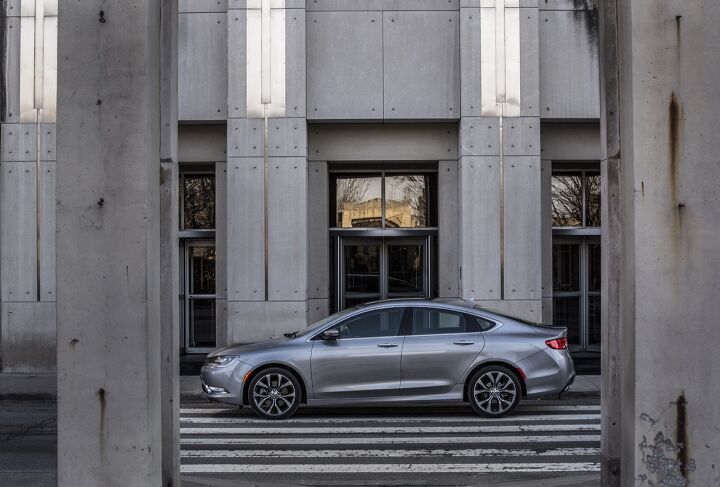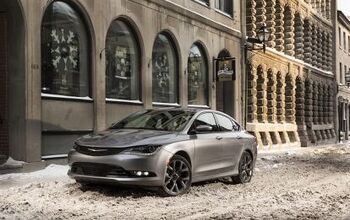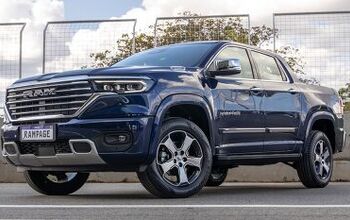Midsize Sedan Deathwatch #11: Blame Midsize Cars For America's Passenger Car Decline
Why did America’s passenger car market tumble 11 percent in April 2017?
Midsize cars deserve much of the blame.
Why is America’s passenger car market down 12 percent through the first four months of 2017?
Midsize cars deserve most of the blame.
This is the eleventh edition of TTAC’s Midsize Sedan Deathwatch. The midsize sedan as we know it — “midsizedus sedanicus” in the original latin — isn’t going anywhere any time soon, but the ongoing sales contraction will result in a reduction of mainstream intermediate sedans in the U.S. market.
How do we know? It already has.
There’s no denying that cars, in the sector-wide sense, are truly struggling. Not only did America’s best-selling car, the Toyota Camry, report declining year-over-year volume in April 2017, so too did its top-selling small car alternatives, the Honda Civic and Toyota Corolla.
Moreover, through the first one-third of 2017, outside of the midsize sedan segment, U.S. sales of passenger cars are down by more than 133,000 units this year, an 8-percent drop compared with the same period in 2016.
Yet the bulk of the U.S. passenger car market’s decline in 2017 can be traced back to the midsize car segment. Sales of the Toyota Camry-led category are down 20 percent this year, a loss of nearly 144,000 sales for one category alone.
In other words, roughly a dozen nameplates have seen sales fall by nearly 144,000 units over the course of only four months while sales of some twelve dozen other cars suffered a combined sales decline of approximately 133,000 sales during the same period.
Virtually every midsize sedan shares part of the blame. Only the Volkswagen Passat, sales of which grew 24 percent in the first four months of 2017, stands out in a pack of midsize malaise.
Of course, Passat sales are down 10 percent compared with the first four months of 2015, prior to the eruption of Volkswagen’s diesel emissions scandal.
You could argue that one discontinued model is skewing the overall results, though the very fact that the Chrysler 200 is disappearing is evidence supporting TTAC’s contention that more midsize cars will disappear. Chrysler 200 sales are down 57 percent so far this year. But remember, by this time last year the 200 had already become a low-volume midsize player.
The Chrysler’s 57-percent decrease in early 2017 translates to only 12,641 lost sales. Meanwhile, the Nissan Altima has already seen sales plunge by 19,568 units this year. The Toyota Camry’s year-to-date volume is down by more than 15,000 units. Honda Accord sales are off by nearly 12,000 units. And those are the highly successful midsize cars.
The Ford Fusion is losing an average of 7,000 sales per month. The Chevrolet Malibu, all-new last year, the freshest midsize car on the dealer forecourt, only a few months ago offering evidence that a new design could produce growth, is losing 6,900 sales per month. The Hyundai Sonata, which produced a modest sales increase in April, still managed to produce 22,505 fewer sales in 2017’s first four months than in the same period of 2016.
The solution: new cars. The new Toyota Camry is only one month away from the first media drives. The new Honda Accord has already been spotted. A new Nissan Altima is due later this year.
But those are already the most popular passenger car nameplates in the midsize sector. They’re already gaining market share in old age.
Fresh iterations of the most dominant midsize cars in America isn’t going to make life any easier for midpack and lower-tier players.
Timothy Cain is the founder of GoodCarBadCar.net, which obsesses over the free and frequent publication of U.S. and Canadian auto sales figures. Follow on Twitter @timcaincars.
More by Timothy Cain
Latest Car Reviews
Read moreLatest Product Reviews
Read moreRecent Comments
- Danddd Or just get a CX5 or 50 instead.
- Groza George My next car will be a PHEV truck if I can find one I like. I travel a lot for work and the only way I would get a full EV is if hotels and corporate housing all have charging stations.I would really like a Toyota Tacoma or Nissan Frontier PHEV
- Slavuta Motor Trend"Although the interior appears more upscale, sit in it a while and you notice the grainy plastics and conventional design. The doors sound tinny, the small strip of buttons in the center stack flexes, and the rear seats are on the firm side (but we dig the ability to recline). Most frustrating were the repeated Apple CarPlay glitches that seemed to slow down the apps running through it."
- Brandon I would vote for my 23 Escape ST-Line with the 2.0L turbo and a normal 8 speed transmission instead of CVT. 250 HP, I average 28 MPG and get much higher on trips and get a nice 13" sync4 touchscreen. It leaves these 2 in my dust literally
- JLGOLDEN When this and Hornet were revealed, I expected BOTH to quickly become best-sellers for their brands. They look great, and seem like interesting and fun alternatives in a crowded market. Alas, ambitious pricing is a bridge too far...




































Comments
Join the conversation
My take on declining mid size sedan sales. Rental companies instead of buying thousands of mid size sedans are buying CUVs and SUVs in huge numbers. The resale value of one/two year old sedans has dropped like a rock where CUVs and SUVs have strong resale values. It may be hard to prove my theory but this may be a significant part of the decline in the number of mid size sedans. Altimas, Malibus, Fusions, Camrys and Sonatas have been beneficiaries of huge fleet sales in recent years, now not as much.
The only deathwatch is for Chrysler for cancelling their entire midsize carline. Actually, Chrysler should be on dead watch since their entire line up is rubbish. Just look at JD Powers and Consumers Report if you don't believe me. The Camry and Accord will be fine. Both Toyota and Honda are run by people that know what they are doing. In contrast GM and Chrysler are run by short term thinking idiots. In a decade they will both be back on the government teat.